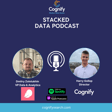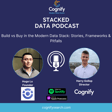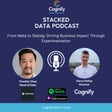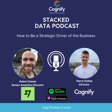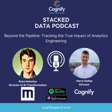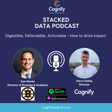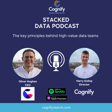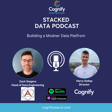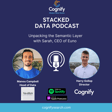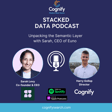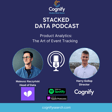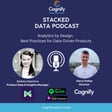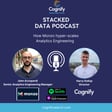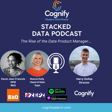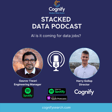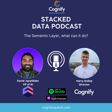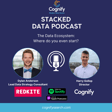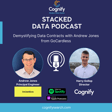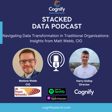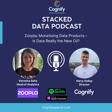
006 - Unlocking Exponential Growth: The Data Platform Revolution
In Richard's own words, a data platform serves as a horizontal service—a team and platform that supports various vertical pillars across a business, enabling them to operate as efficiently as possible.
Large enterprises are often notorious for lacking speed, agility, and efficiency. Richard tackled this challenge head-on at VMO2 by combining cutting-edge technology with impeccable processes to construct a data platform that fuels exponential growth.
Richard's data platform team has achieved a remarkable 10x impact across an organization, with over 200+ engineers and analysts using the platform daily to drive business value.
Tune in now to hear more, and you'll discover:
- How to structure a team to successfully deliver such a wide-ranging project.
- The Return on Investment (ROI) of a data platform.
- The most significant challenges in building an enterprise data platform.
- The essential skills required for successful execution.
- Striking the right balance between technical expertise and soft skills as a data leader.
SEE THE EXACT QUESTIONS AT THESE TIMES
2.00 Richards's background and experience
5.50 What is a data platform
10.40 What is the end goal of a data platform how does it facilitate ROI
13.30 How do you structure a team to deliver a data platform at scale
19.00 What have been your biggest challenges and lessons on this journey
25.00 if you could do it all again what would you do differently
27.22 How do you have the agility to navigate the ever-evolving landscape
24.00 How do you use your tools and platform to “level up “ the whole organization
41.20 Quick fire questions
